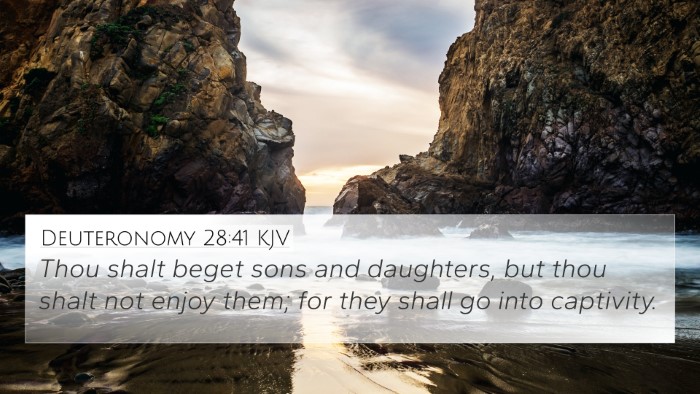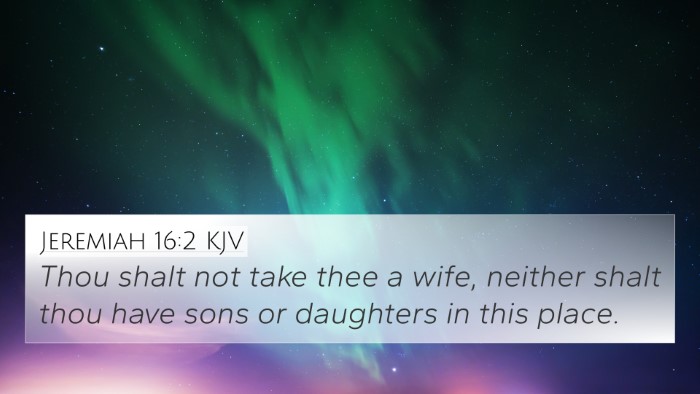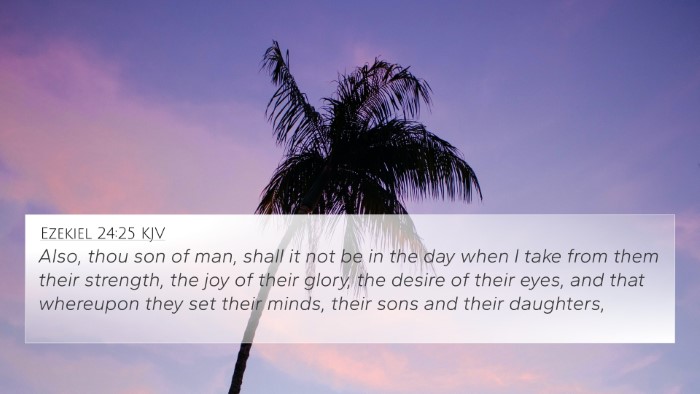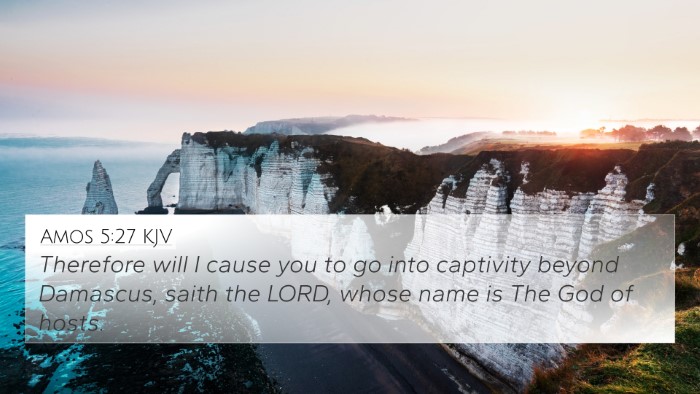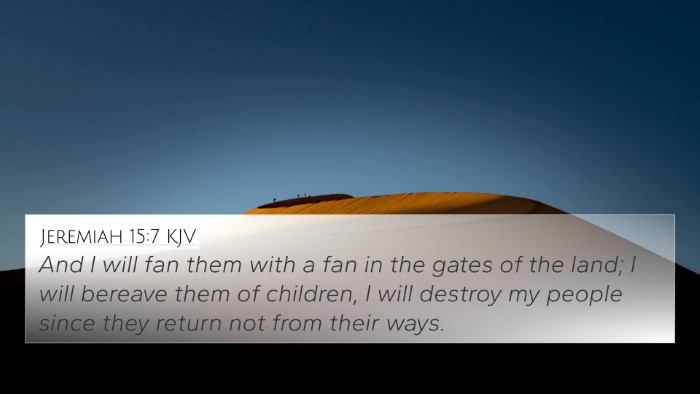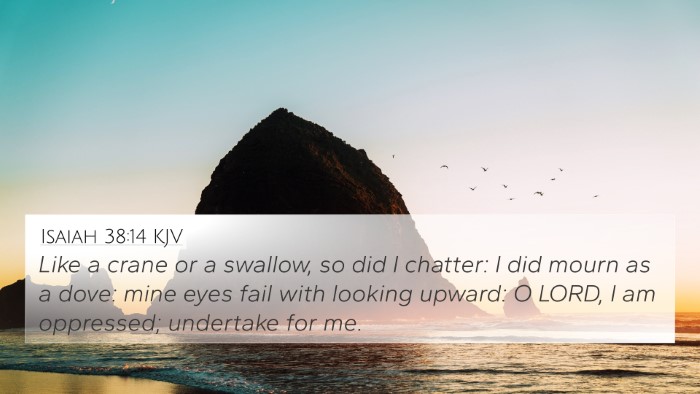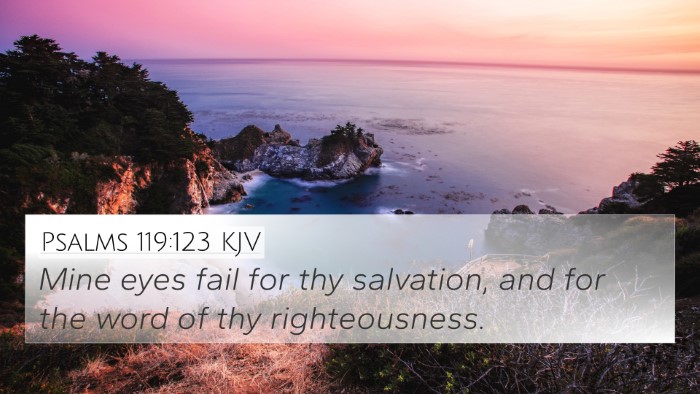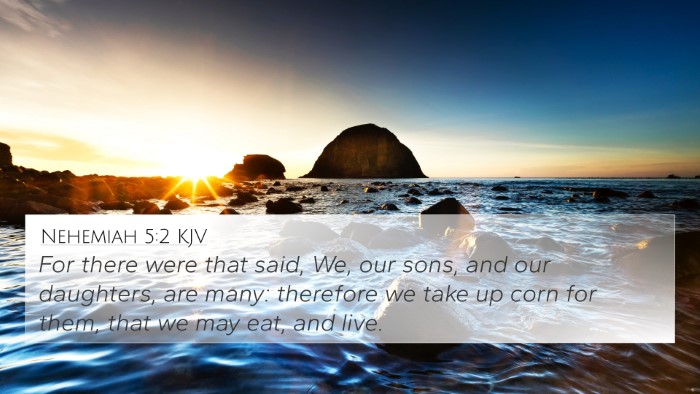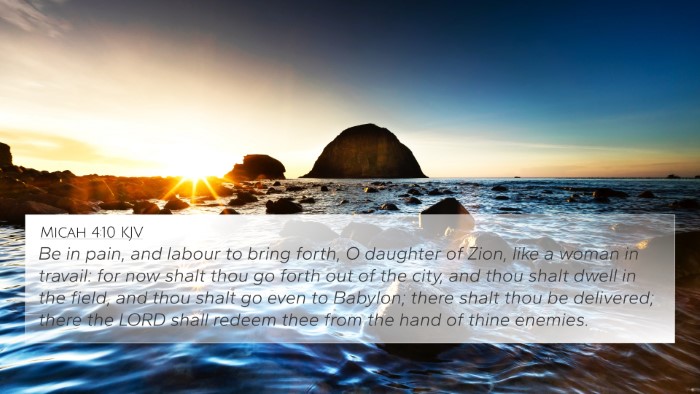Understanding Deuteronomy 28:32
Bible Verse: Deuteronomy 28:32 - "Your sons and daughters shall be given to another people, and your eyes shall look and fail with longing for them all day long; and there shall be no strength in your hand."
Summary of Meaning
This verse, located within the context of blessings and curses in Deuteronomy 28, poignantly illustrates the sorrow and devastation that comes from disobedience to God. It reflects the reality of losing one’s children, an unimaginable grief that would lead to emotional desolation. The absence of “strength in your hand” indicates the futility of trying to reclaim what has been lost. This serves as a sobering reminder of the consequences of turning away from God’s covenant.
Insights from Public Domain Commentaries
-
Matthew Henry's Commentary
Matthew Henry emphasizes the vulnerability and tragedy that comes when a people are exiled. He notes that the loss of children is a fate that indicates a greater divine judgment due to persistent sinfulness. Henry highlights the agony a parent would face, suggesting that no material wealth or power could remedy the heartache created by such loss.
-
Albert Barnes' Notes
Albert Barnes provides insight into the spiritual implications of this verse. He states that this prophecy signifies the ultimate physical and spiritual loss that a nation faces when it turns its back on God. The loss of children symbolizes a severing of familial and social ties, demonstrating the severe implications of disobedience and the resulting divine judgment.
-
Adam Clarke's Commentary
Adam Clarke focuses on the emotional weight of the verse, describing the profound depth of longing and regret. He points out that this reflects the disconnectedness between the people and God, contributing to their despair. Clarke also suggests that this will serve both as a warning and a source of reflection for the Israelites to consider their commitment to God’s commandments.
Cross-References to Deuteronomy 28:32
Understanding the connections between Bible verses enhances our insight into Deuteronomy 28:32. Here are some related verses:
- Jeremiah 15:7: Highlights the consequences of disobedience, where a similar loss is felt in exile.
- 2 Kings 25:7: Illustrates the reality of captivity and the loss of relational connections.
- Psalms 137:1-4: Reflects on the sorrow of exile and longing for homeland, akin to the parental longing described.
- Ezekiel 5:10: Discusses the punishment wherein children perish as a judgment upon a disobedient people.
- Hosea 9:12: Reflects a similar theme of loss and despair as a consequence of harlotry against God.
- Isaiah 47:9: Speaks of the loss of children as a dire consequence of divine judgment.
- Luke 23:29: Touches on a prophetic fulfillment of sorrow for families at the cost of sin.
Thematic Connections
1. Familial Loss: Deuteronomy 28:32 correlates with verses that illustrate familial loss due to judgment, emphasizing the importance of maintaining a godly family structure and honoring God's commandments.
2. Exile: The experiences of exile detailed in Jeremiah and Psalms can be seen as consequential to the disobedience addressed in Deuteronomy.
3. Judgment and Repentance: The overarching theme of judgment for disobedience provides a crucial backdrop for understanding the intentions behind the pronouncement in this verse.
Practical Implications
For those studying this verse through Bible concordance or cross-reference Bible study, it is vital to consider the historical context of Israel's covenant relationship with God. This verse serves as both a warning and an encouragement to remain devoted to God's commandments, recognizing the lasting influence of choices made out of line with His will.
Tools for Bible Cross-Referencing
Utilizing resources like a Bible cross-reference guide or tools for Bible cross-referencing can greatly enhance one’s understanding of interconnections between scriptures. By engaging with a detailed cross-reference Bible study, one can explore thematic connections that span across the Old and New Testaments.
Conclusion
In analyzing Deuteronomy 28:32, we uncover a profound emotional landscape that speaks not just of familial loss but also the deeper relational estrangement from God that incurs such losses. As we engage in comparative Bible verse analysis, we invite a comprehensive understanding that connects our current faith journeys back to both the historical narrative and divine principles at play. The significance of this verse extends both as a lesson in fidelity to God's covenant and as a warning against the ramifications of turning away from His ways.



